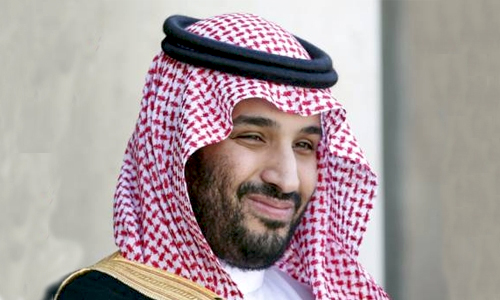Manama, Apr 6: Saudi Arabia could introduce a system for its millions of expatriates that would be similar to the Green Card system in the US.

No details were given by Prince Mohammad, but with around nine million foreigners living in the vast kingdom, making up one third of the total population, the system would be a source for the country as it seeks to implement an ambitious package of new reforms and measures that will considerably improve its non-oil revenues and “raise at least an extra $100 billion a year by 2020, more than tripling non-oil income and balancing the budget.”
“It's a large package of programmes that aims to restructure some revenue-generating sectors,” Prince Mohammad told Bloomberg.
The emulation of the American Green Card system would be alongside more steps to restructure subsidies and the imposition of a value-added tax and a levy on energy and sugary drinks as well as luxury items, the deputy crown prince reportedly said.
Most of the foreigners in Saudi Arabia and fellow Gulf Cooperation Council (GCC) countries – Bahrain, Kuwait, Qatar, Oman and the United Arab Emirate – are Asians, mainly unskilled workers in the booming building and service sectors.
In his interview, Prince Mohammad expressed optimism the new measures would reinforce the government's drive to reduce reliance on oil and to boost non-oil revenues.
“We did a quick fix in 2015 which increased our non-oil revenue by 35 per cent,” he said. “This year, we are trying to target over $25 billion. I believe we will succeed in achieving more than $10 billion in non-oil revenue in 2016.”
With the dramatic slump of oil prices, the GCC countries have been looking at viable options to generate non-oil sources and reduce threats to fiscal stability and sustainability.
Experts believe that hydrocarbon exports represent more than 80 per cent of the total revenue in the GCC countries where taxation is almost absent.
The main non-oil revenue base in the GCC states currently includes customs duties and fees and charges.
Bahrain, the first GCC country to discover oil in 1932, has been leading the way in the diversification of non-oil resources.




Comments
Hahaha viren ..namge beda aa wahabi rashtra ..muzzies here in this column please note yelli yenne sigalvo ..yelli dance bars or disco theck ilvo ...antha rashtra kke banni makla full citizenship kodthivi andru ..beda milk shake mama neene itko beda andu bidteevi ...we are well aware soon saud family will collapse ...Isis is already making deep inroads into Saudi ...they have the weakest army in the world .this program will encourage Indo pakis who are in very large No's in India .no non Muslims will take PR for sure .as per IMF due to decline in oil revenues for the first time they are reeling into debt. Haha..soon it will create more problem as they don't have alternate non oil source ..milk shakes ge bere field nalli ashtu talent saha illa. ..
Hahahahah... So Non-Muslims also want green card in Saudi? Check if you can avail one, but make sure you don't worship Camel Maatha,..!
There are other disadvantages though;
- No Riots
- No Photoshop
- No Love Jihad issue.
- No Moral policing
- No Lynching
- No Alchohol/Drugs
- No Pornography
- No Rapes
Are you sure you chaddis will be able to survive without all this?
Just study QURAN, YOU will understand Y u feel grudge against MUSLIMS...
Our CREATOR speaks about the CREATION & also he Warns us about Y grudge, Jealousy, Sin, hate, crime, DECEPTION & other Evils come from... and ROOT it comes from.
Animals live their way and Man was created by ALLAH with intelligence... Sometimes Use your intelligence to know what our CREATOR speaks... and dont live like the animals.
Viren why do u need now muslim country green card?
Viren...say Bharat Mata ki jai n enjoy your stay here..why worried about green card
@ Viren Kotian 100% only for Muslims and should accept Saudi Arabia Islamic Rules with respect
Viren Kotiyaaan
Why are you intrested in the permanent residence of KSA. you should be happy in india with the chaddies ruling you. And by the way not everyone in the world is like you and your chadii rulers. there are people who look for the Human attributes in human beings not only religion . thats why there are many RSS chaddies who earn in saudi and send the money to their families in india.
I think for you spcially we will recommend govt to get red card to ban saudi arabia
Only for muslims or non muslims also will get green card?
Add new comment